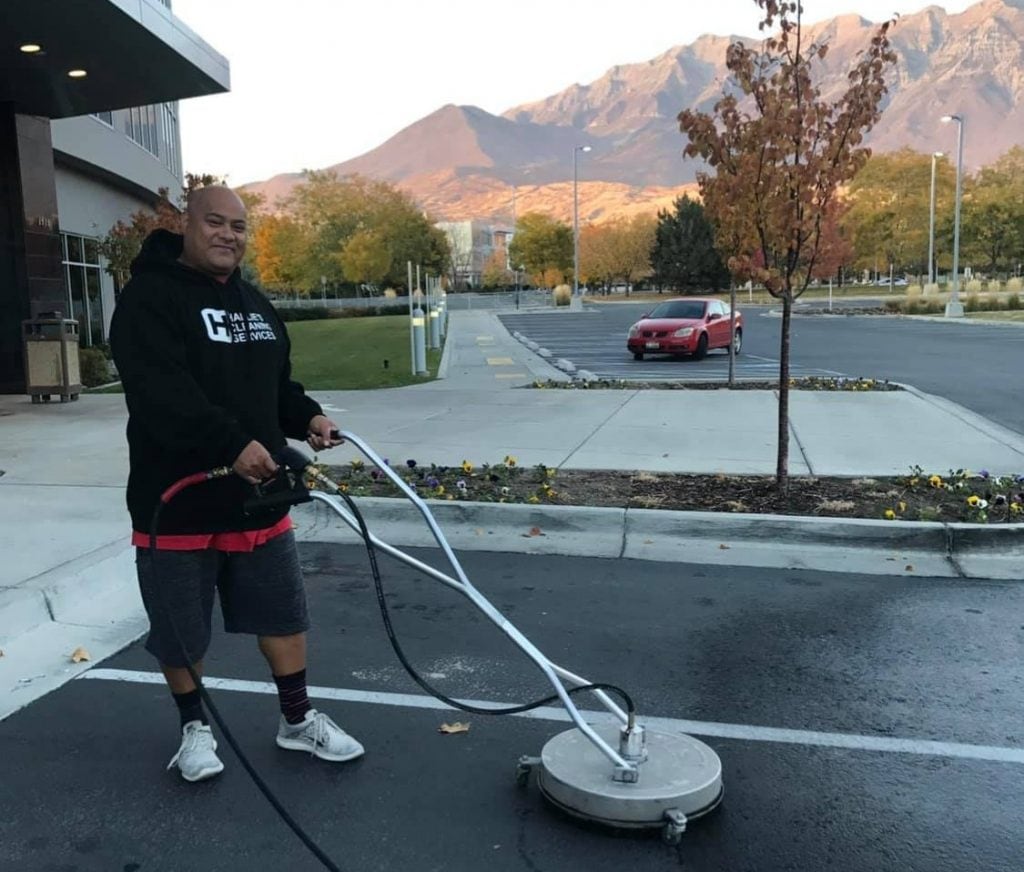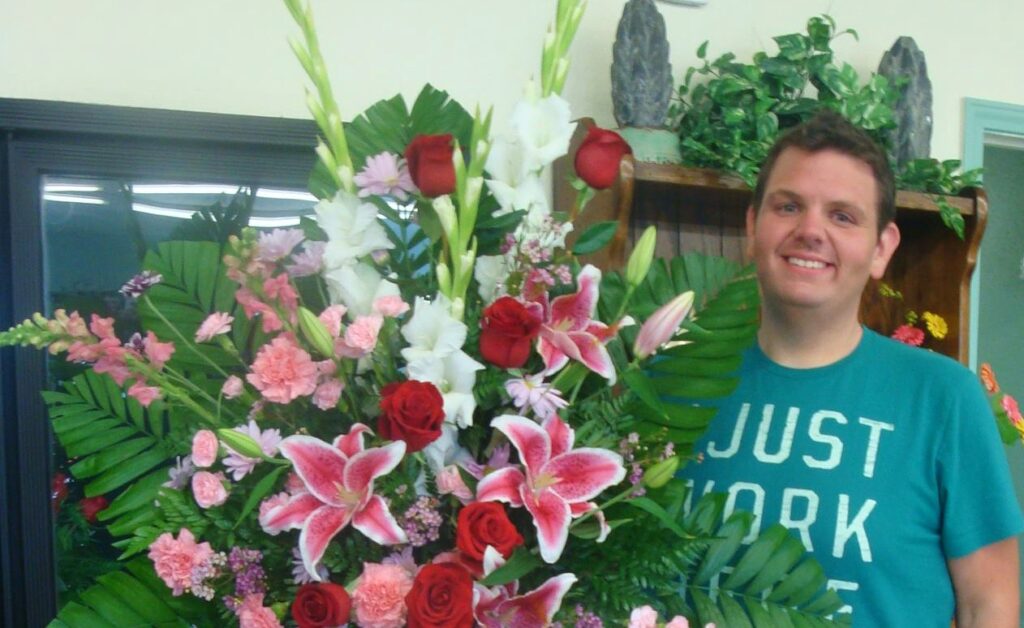Celebrating your success.

Featured
Testimonials
Podcast
“You are not really making a difference with the children that you are working with. Your job is easily replaceable, and you’re always going to be a seat-filler.” These words pierced through Sierra like a knife. She had finally fulfilled her dream of becoming a teacher specially trained to work with blind and visually impaired individuals and she was excelling at it. Yet this conversation with her school’s principal made her doubt all of that. But that’s when she had an idea. What if she worked to make a difference in the lives of not only those in her classroom, but others as well? Listen as Sierra shares how she began House of Light, a consulting and training business that specializes in equitable treatment of those who are blind or visually impaired.

Business Tips from Sierra:
1. Find your “why” and the money will follow.
“What we don’t talk enough about as entrepreneurs is why we do it, right? If you are doing what you’re doing what you’re doing as an entrepreneur and it’s tied to your purpose, the money is going to come.”
2. Hire those who are invested in your purpose.
“I’m not hiring you because you are great at what you do. I’m hiring you because [I ask], ‘Hey, what’s your two, three, five year goal?’ And if their goals do not align with House of Light’s culture and climate, we’re not a fit because you’re not going to stay. You’re not invested.”
3. Find your work-life harmony.
“There’s no such thing as work-life balance in my life but there’s harmony. I only check my emails in the morning and at night. At night when I’m reading them, I schedule them out for the next morning so while I’m gone doing whatever, I know you are getting them and you are responding back and I’m still going to respond to you in 24 hours because I dedicate 30 to 40 minutes of my nighttime routine just answering emails.”
Website: www.houseoflightllc.org
– Facebook: https://www.facebook.com/houseoflightllc– Instagram:https://www.instagram.com/house_of_lightllc/– Linkedin: https://www.linkedin.com/company/house-of-light-llc
COVID was what pushed Kendrah to start her own business. Or rather, it was fighting for time to recover from COVID that was the last straw. For years, Kendrah had dreamed of starting her own marketing agency. As a former fashion blogger, brand ambassador, and social media influencer, Kendrah had seen the many facets of growing a business. And she particularly loved helping small businesses grow as a marketing freelancer while working at a large marketing agency. So when push came to shove and Kendrah took the leap to start her own business, she was ready. Listen as Kendrah shares what it took to start her own marketing agency: Astira Studio.


Business Tips from Kendrah:
1. You are your own best employee.
“I’m the boss of myself but I’m also the employee of myself.”
2. If you want to start your own business, don’t be pigeonholed.
“One of the people I reported to would give me side missions because she knew I was interested in what made an agency work. . . . That really got me comfortable with bringing new ideas to the table even when people tried to pigeonhole me.”
3. Make sure you are ready to start marketing your business.
“You might say, ‘Oh, I want to increase my sales.’ But it’s like, ‘Okay, are we ready to increase your sales? Let’s take a holistic look at your entire business right now. Do you have your social media set up? Do you have your website set up? Do you have a client process? Is everything in order for us to even put you in front of an audience?’”
Website: astirastudio.com
Instagram: astirastudio
COVID was what pushed Kendrah to start her own business. Or rather, it was fighting for time to recover from COVID that was the last straw. For years, Kendrah had dreamed of starting her own marketing agency. As a former fashion blogger, brand ambassador, and social media influencer, Kendrah had seen the many facets of growing a business. And she particularly loved helping small businesses grow as a marketing freelancer while working at a large marketing agency. So when push came to shove and Kendrah took the leap to start her own business, she was ready. Listen as Kendrah shares what it took to start her own marketing agency: Astira Studio.


Business Tips from Kendrah:
1. You are your own best employee.
“I’m the boss of myself but I’m also the employee of myself.”
2. If you want to start your own business, don’t be pigeonholed.
“One of the people I reported to would give me side missions because she knew I was interested in what made an agency work. . . . That really got me comfortable with bringing new ideas to the table even when people tried to pigeonhole me.”
3. Make sure you are ready to start marketing your business.
“You might say, ‘Oh, I want to increase my sales.’ But it’s like, ‘Okay, are we ready to increase your sales? Let’s take a holistic look at your entire business right now. Do you have your social media set up? Do you have your website set up? Do you have a client process? Is everything in order for us to even put you in front of an audience?’”
Website: astirastudio.com
Instagram: astirastudio
Naomi was in the car with her young cousins, excited to finally have a break from college and enjoy a day at the park. But Naomi became concerned when her cousin, who was also excited to spend time at the park, wouldn’t leave the car. After some gentle coaxing, Naomi’s young cousin revealed she didn’t want to leave the car because it was a sunny day and she was worried her skin would become darker. From that moment on, Naomi determined she would help BIPOC children around the world unlearn self-hate caused by colorism and embrace their cultures, histories, and identities. And she would do so by creating her own business. Listen as Naomi shares how she began Revolutionary Hearts Industries, a publishing house that specializes in empowering children and adults through educational coloring books.



Business Advice from Naomi:
1. Find your something.
“When I started making coloring books, I realized that this was my something. I can’t fix colorism. I can’t fix racism. I can’t fix all these structural oppressions. But at the very least I can show a Black or Brown child that they are powerful. That they are deserving. That they are smart. That they are valuable.”
2. Find your village.
“My biggest flex in life is I have always had people who supported me, whether or not they thought what I was doing was insane or not. They would give me patterns. They would ask me harder questions. . . . So I think for me, when it comes to what makes me motivated, it’s the fact that I have had such a beautiful village of people . . . who have been so hammered down behind me.”
3. Failure is not an attack on you.
“How I recover from failure is by asking questions as to why I didn’t move to the next level. Or asking questions as to how I could have done better . . . . I don’t take failure as an attack on me. I take it as I could have done better; I’m going to keep going for it.”
- Naomi Winston: @naomi.winston33
- Revolutionary Hearts: @revolutionaryheartsind
TikTok
- Naomi Winston: @naomi.win10k
- Revolutionary Hearts: @revolutionaryheartsind
Website
- Revolutionary Hearts (www.revolutionaryheartsind.com)
- Naomi Winston (www.nwimmortalized.com)
Ana and Belouka are no strangers to fashion. In fact, Belouka moved from her home in Haiti to New York to begin a modeling career at 19, and Ana sewed clothing pieces for fashion week after also moving from Haiti to the U.S. So when Belouka had an idea for a swimsuit design, she reached out to her friend, Ana. What followed was the beginning of a business that celebrates Haitian culture through colorful and comfortable swimwear. Listen as Ana and Belouka share how they began Imamou.

Business Advice from Annas and Belouka:
1. Find a business partner who will complement your strengthens and weaknesses.
“I started thinking about who I could share ideas with. And then I was like, ‘I think Anna would be a great partner.’ . . . I needed the organized side and the question side and to help me think bigger about what we can do and that’s why I chose her.”-Belouka
2. Whatever your business might be, make it yours.
“Not only are we incorporating our culture, our colors, our stories within this, this is something no one has ever seen before because this is actually our art that we’re infusing into this product.” -Anna
3. You may have to put certain things on hold until you find a solution.
“There are just swim pieces that we put on the side . . . . And we’re like, ‘You know, if we sit with this piece we will never launch. So let’s just put this piece on the side and we will figure it out later. Let’s just keep moving.”-Belouka
Email: [email protected]
Instagram: @Imamouswimwear
Joresa had a question: If she could order a cup of coffee on an app and have it delivered in 30 minutes, why couldn’t she have a dress from a store delivered in the same amount of time? This question is what led Joresa to begin GoFlyy, a company that helps other businesses grow by providing package delivery and tracking services. But starting a logistics company of this scale hasn’t always been easy. Listen as Joresa shares how she overcomes challenges from funding to technology in order to keep her small business going.


Business Advice from Joresa:
1. No one is disqualified from becoming an entrepreneur.
“It’s so important for people to know that they don’t have to have a traditional background to start a business. That imposter syndrome can set in and making it feel like you can’t build what you’re building because you didn’t do it before or you don’t have the pedigree for it, but it’s just not true.”
2. Be comfortable with failure.
“Being comfortable with failure is one of the hardest things. You just have to get over it. You’ve got to fail and you’ve got to move on.”
3. Find the pace that works for your business.
“Take a step back, ask yourself the hard questions, and manage the pace that works for you.”
Website: https://www.goflyy.com/about/
Facebook: GoFlyyusa
Instagram: @goflyyusa
Twitter: @goflyyusa
Whenever Marissa—a barista and coffee educator—would ask about coffee beans from Asia, she was always told the same thing: there was only one coffee from Asia and it was bad. This did not sit well with her. And as she researched further into the matter, Marissa found a plethora of Asian coffees, each with their own unique flavors ranging from notes of chocolate to floral and herbaceous flavors. With this knowledge, Marissa decided to show others how, just like how no countries in Asia were the same, neither was their coffee. Listen as Marissa shares how she began her business: Tanbrown Coffee.



Business Tips from Marissa:
1. Incorporate all your talents for the good of your business.
“Think about the things that your good at already that are not necessarily your focus in terms of your small business. So, for example, do you already have an aptitude for writing? Then you can write all your copy. Or maybe you’ve done art. Use that kind of stuff to influence how your branding might go.”
2. Share the passion you have for your business with others.
“One of the pop-ups I’ve been doing most recently is in a Patagonia shop. I met one of the event manager people at a friend’s wine-tasting event like a year ago and we just talked. I told her about how much I love coffee and a year later, she was like, ‘Can you make coffee for people at these things?’ And I said, ‘Yeah, sure.’”
3. See a collaboration where others see competition.
“For me, finding people who are like-minded and who want to be able to learn from each other and grow together, it’s only beneficial to me. Because I think of it in the future as, ‘Oh, maybe we have a collab release together or maybe we host an event together.’ And it shows more expansion for the industry that we’re in rather than make it so individualistic.”
Website: https://tanbrown.coffee
Instagram: @tanbrowncoffee
TikTok: @tanbrowncoffee





